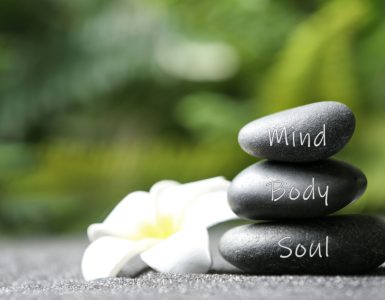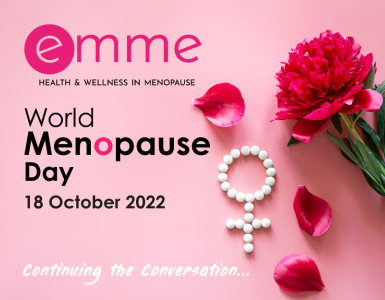The sad reality, is that the plunging levels of oestrogen during menopause can dramatically reduce quality of life
The great news though, is that Neuro- science can offer some clinically proven ways to help support and alleviate the rollercoaster of low moods, anxiety, depression and improve wellbeing.
We turned to Colette Assor, an accredited Acupuncturist with over 20 years clinical experience, to discuss the power of gratitude, mindfulness and acupuncture. (Natural ways to improve wellbeing that can be used alongside taking medication/ HRT and for people who are choosing to take a natural path through menopause.)
Mindfulness
Mindfulness is defined as moment-by-moment awareness of our thoughts, feelings, experiences and environment.
Research has found that the practise of mindfulness can lead to less worry, reduced stress and improved wellbeing.
The tendency to worry about several things at once can interfere with the ability to focus on the present moment. As a result, people tend to function on autopilot and become ‘mindless’. The art of mindfulness is to live life in the present moment.
Adopting a mindfulness practice as part of your daily self -care routine can be helpful to manage worry and anxiety.
Meditation
Mindful Meditation teaches a racing mind how to slow down and, is proven to be highly effective in helping people become more mindful in their daily experiences.
Regular meditation practice helps promote calmness, inner stability, acceptance and can reduce impulsive behaviours.
Separation from the daily flow of emotions, can help reduce anxiety and stress and achieve a more grounded and positive mindset.
Techniques can vary, but in general mindful meditation involves deep breathing and an awareness of mind and body.
A regular practice will help you to understand that thoughts are temporary experiences often helping manage excessive overthinking and worry.
To learn more please visit here
Consider Acupuncture
Acupuncture is an ancient therapy practised in the East for thousands of years. It is now being acclaimed as the go to natural therapy for the modern world.
Treatment involves the insertion of ultra -fine hair like pins into specific points on the body. The aim is to stimulate the body’s own natural healing response and restore equilibrium.
Most people report a feeling of deep relaxation and calm after a session.
From a bio medical viewpoint, acupuncture stimulates the nervous system, influencing the production of hormones and neurotransmitters. The resulting bio -chemical changes activate the body’s own internal regulating system stimulating its natural healing abilities. The improved energy and biochemical balance can promote physical and emotional wellbeing.
The british Medicinal journal have conducted research on acupuncture and menopause and conclude “Acupuncture for menopausal symptoms is a realistic option for women who cannot, or do not wish to use [hormone therapy],”
Acupuncture is a holistic, natural and safe treatment when performed by a fully qualified professional. The focus is on treating the individual rather than just addressing symptoms.
The British Acupuncture Council ( BAcC) is the UK’s leading professional body of Acupuncturists.
All members are degree level trained and are listed on the register of the professional Standards Authority for health and social care. (PSA)
British Acupuncture Council members are the only Acupuncturists on an accredited register.
As well as degree level training BAcC members adhere to codes of professional conduct and safe practice assuring you peace of mind.
The science of Gratitude
Neuroscience research has long established a strong connection between gratitude and good health. Keeping a gratitude journal is shown to improve vitality, energy and emotional wellbeing.
The regular practise of Gratitude is shown to release two crucial neurotransmitters, dopamine and serotonin.
These happy hormones are responsible for feel- good emotions, wellbeing and enhancing mood and happiness.
The practice of gratitude on a daily basis, can help strengthen neural pathways and ultimately create a more permanent grateful and positive state of mind.
Gratitude significantly reduces symptoms of depression and anxiety, by reducing stress hormones and managing the functions of the autonomic nervous system.
Colette Assor Lic Ac MBAcC is an accredited Acupuncturist with over 20 years clinical experience. Colette’s special interests are in menopause. Fertility and women’s health.
Learn more about acupuncture
Learn more about Colette:
Colette qualified as an acupuncturist in 1999 after completing 3 years degree level training and has over 20 years clinical experience.
Special interests are in women’s health, fertility, anxiety and menopause.
Colette currently serves on the member services committee of the British Acupuncture council. The UK’s leading regulatory body of accredited acupuncturists.
Colette is passionate about helping raise professional standards in the acupuncture profession.
She has completed further post graduate training in menopause both in TCM and western medical sciences.
Colette enjoys speaking and writing about her profession. Read more
















